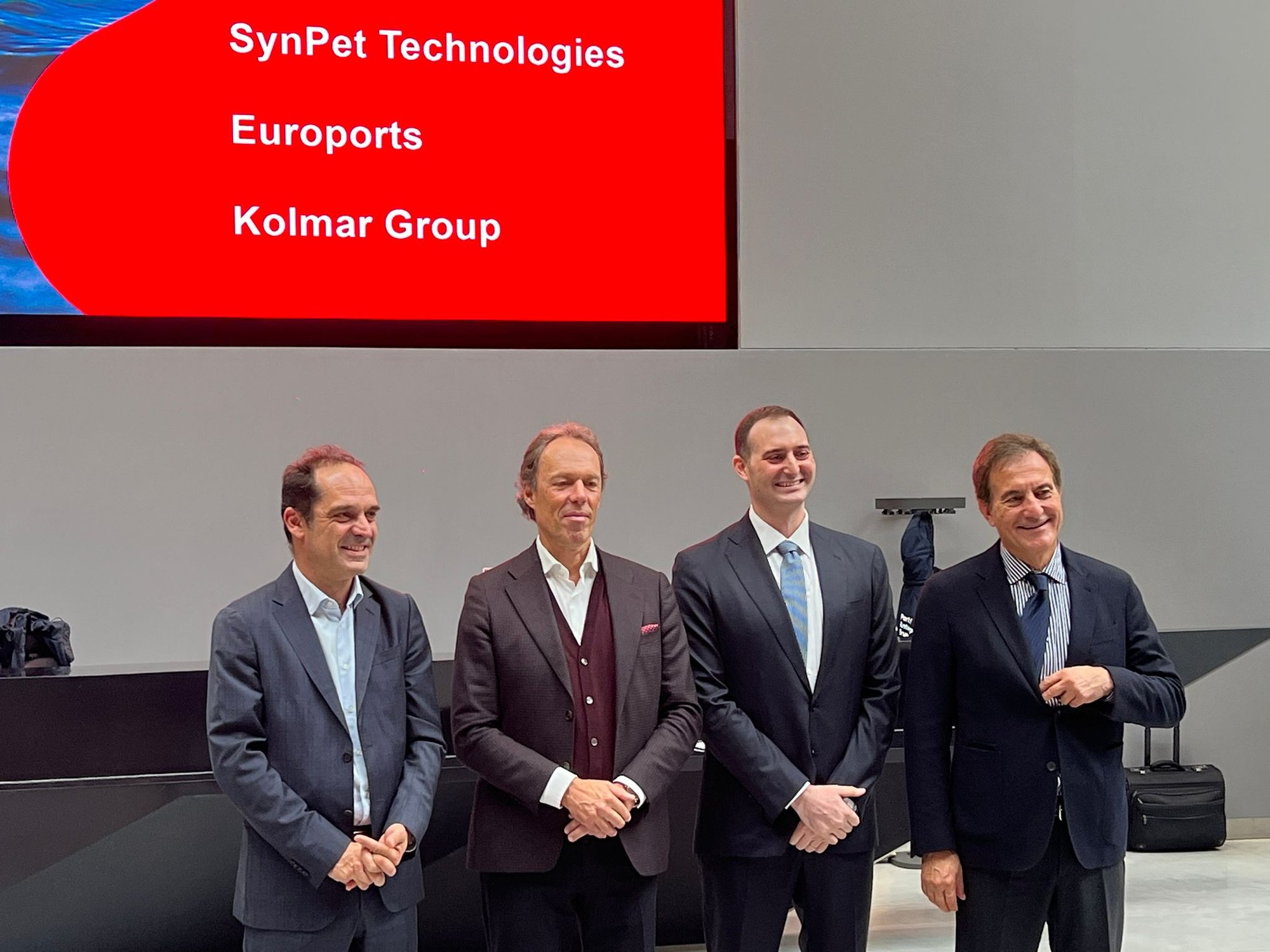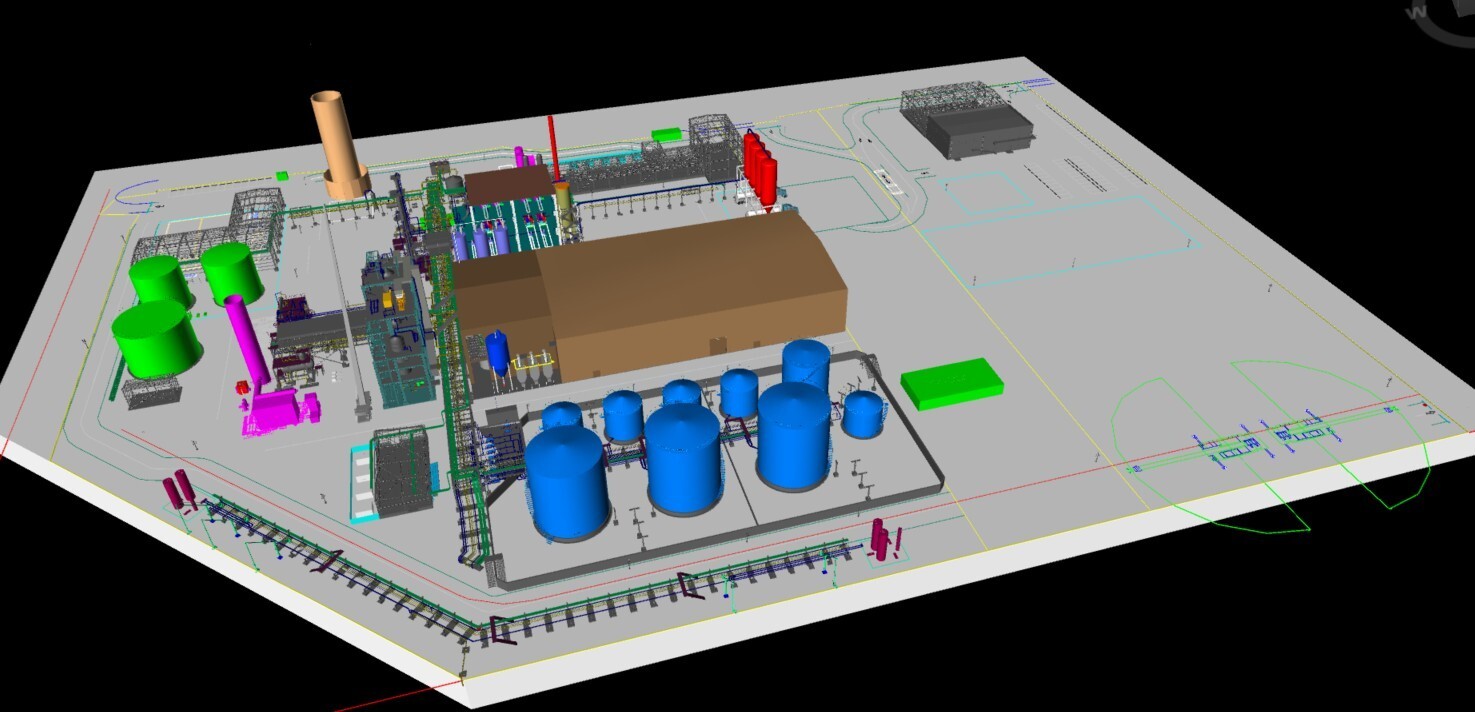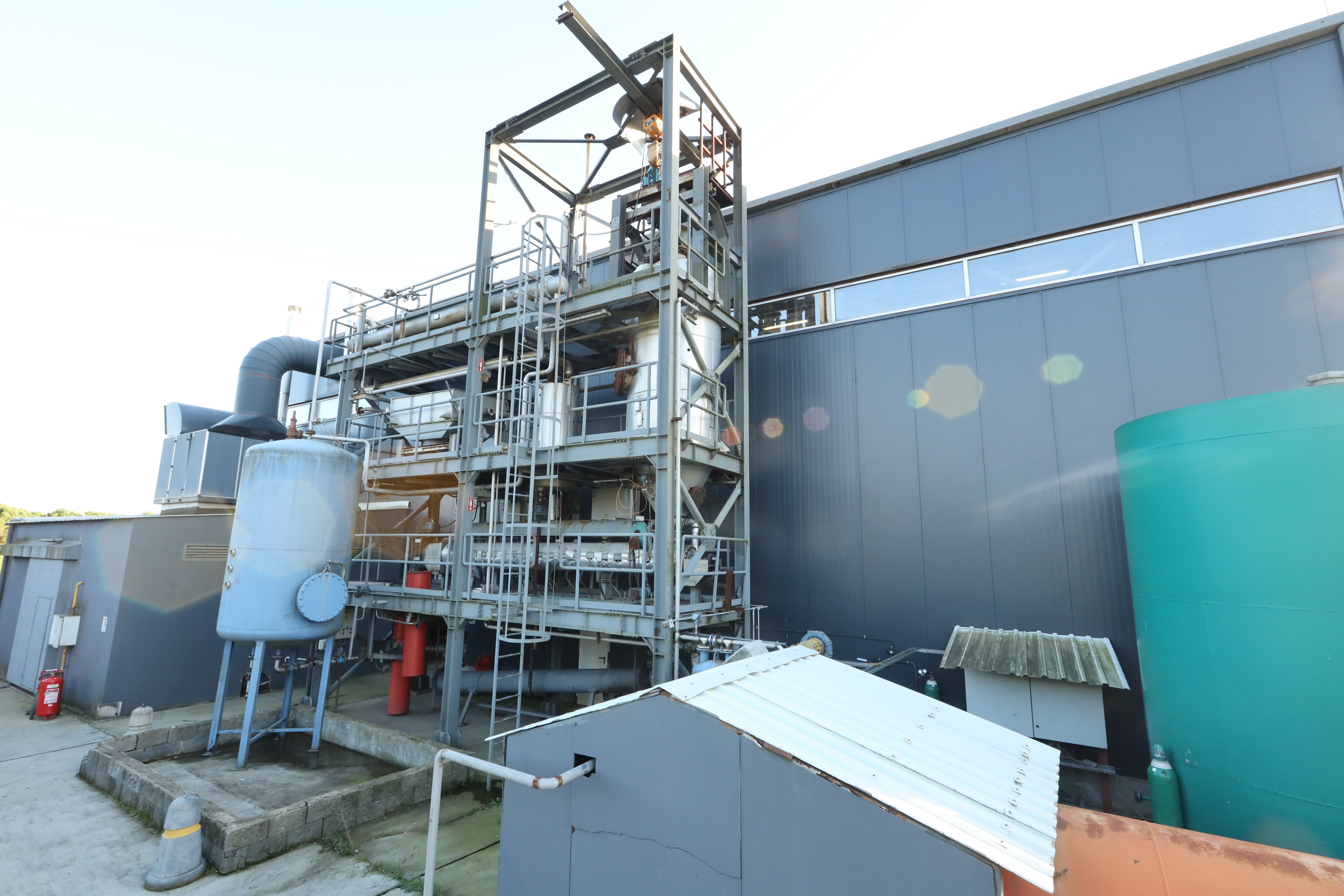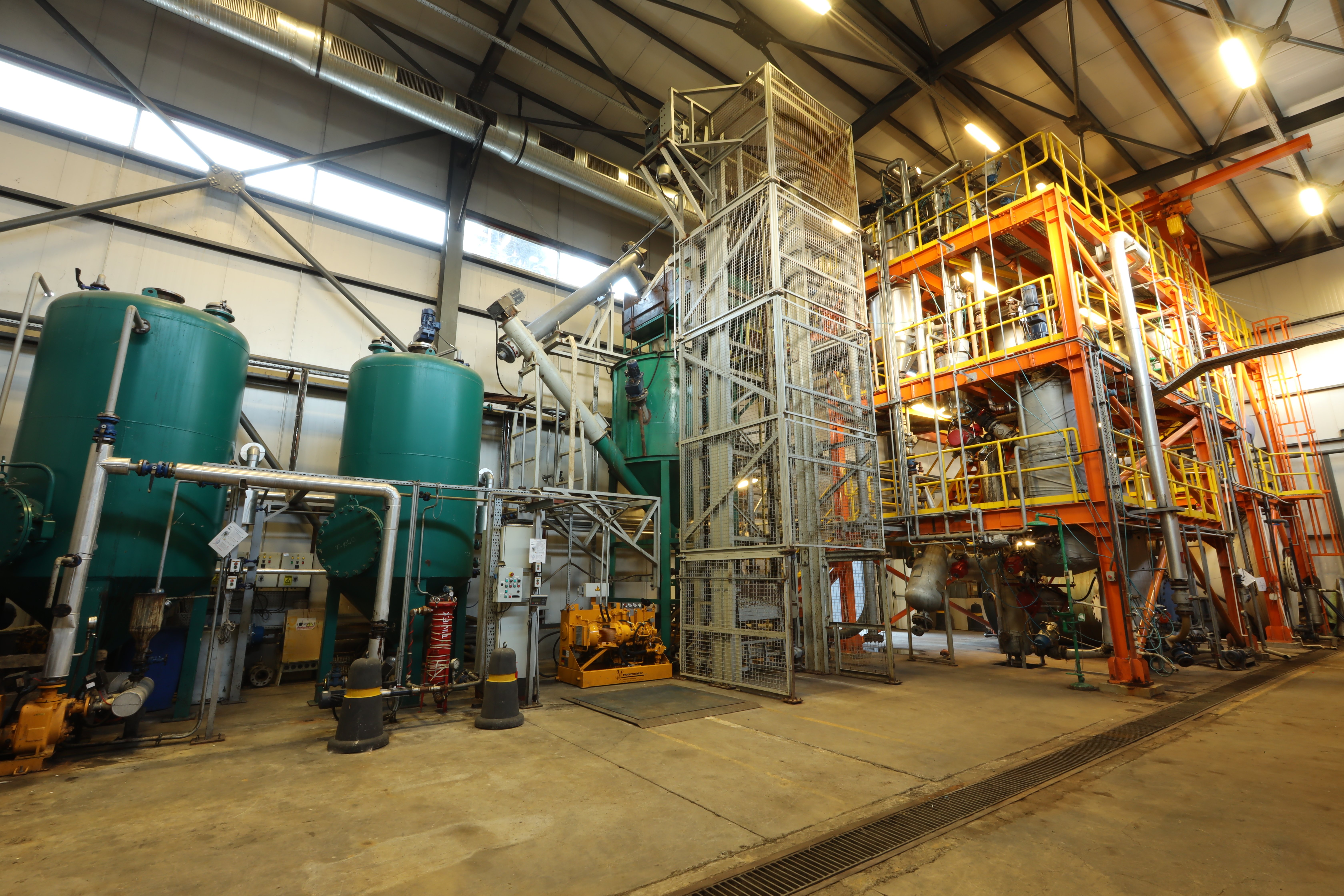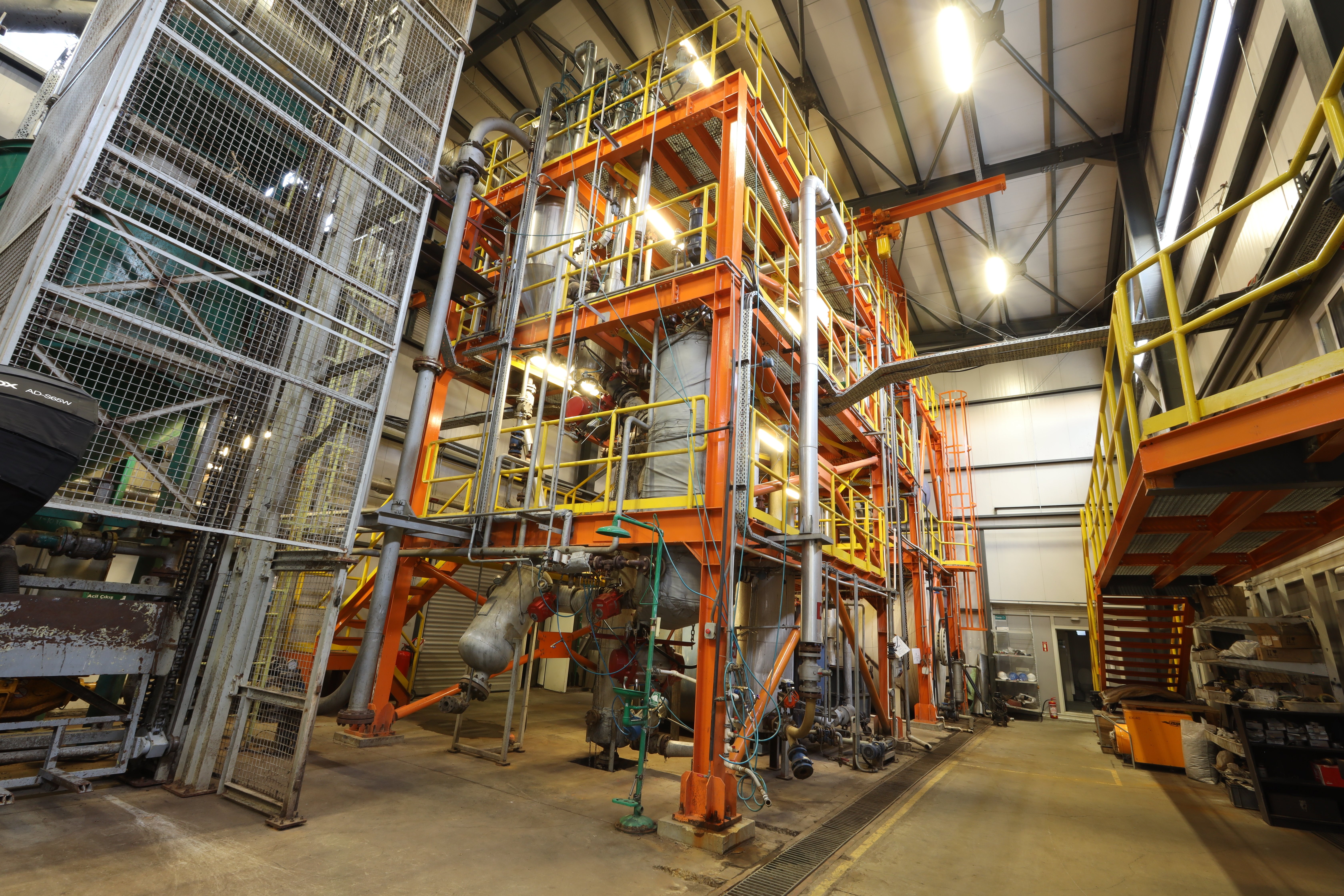Port of Antwerp-Bruges Becomes Global Centre for Circular Plastic Recycling
Belgium-based Turkish technology company SynPet Technologies today announced the construction of its first commercial recycling plant in the Port of Antwerp-Bruges. The €300 million investment follows thirteen years of research and development into a greener and more cost-efficient form of plastic recycling, capable of processing waste that cannot be recycled with current methods such as pyrolysis and gasification. The new facility will transform 250,000 tonnes of untreated mixed plastic waste each year into circular products such as circular naphtha substitute and renewable natural gas, marking a brand new approach to chemical recycling.
Unique technology: all types of plastics, less energy
SynPet’s patented Thermal Conversion Process (TCP®) recycles all carbon-containing waste, including plastics that cannot be processed by existing mechanical or chemical methods. The process uses water under elevated pressure and temperature in combination with thermal cracking in a multi-stage process — making it more energy-efficient and economically viable on an industrial scale. The TCP® process enters full commercial deployment, following SynPet’s consistent running of its existing Demonstration Plant, achieving necessary performance targets; and is now assessed as being ready for large-scale adoption.
The main product of the TCP® process is a high-quality circular naphtha substitute that can be directly blended by petrochemical companies into their existing naphtha feedstock for new plastics manufacturing — without the need for any further purification or upgrading.
What is circular naphtha substitute (CNS®)?
CNS® is a premium-grade product compared to standard pyrolysis oil, offering a significantly higher value in use. It has a final boiling point (FBP) of 360 °C, aligning with the maximum acceptable boiling point for European steam crackers, and similar handling characteristics as the conventional feedstocks.
Unlike standard pyrolysis oil, CNS® requires no additional refinery upgrading or hydro processing, making it suitable for direct blending into cracker feedstock. Defined by a unique quality specification, CNS® ensures consistent performance as a direct-blend feedstock — a truly revolutionary technology introduced by SynPet.
Strategic anchor in the Port of Antwerp-Bruges
The plant will be built on a site with direct water and land access, in collaboration with Euroports and the Port of Antwerp-Bruges. As one of the world’s leading port infrastructure operators, Euroports manages a network of 50+ terminals across Europe and Asia, moving over 70 million tonnes of essential commodities annually. With deep experience in complex renewable and recycling projects, Euroports ensures smooth, reliable port operations that connect every step of the supply chain — from origin to destination. The facility is scheduled to become fully operational in the second half of 2028 and will serve not only as a commercial production site but also as an R&D centre to further optimize circular technologies.
Cem Özsüer, CEO of SynPet Technologies: “The world urgently needs scalable solutions. Our technology proves that plastic doesn’t have to be the problem — it can be part of the solution. We’re proud to bring that vision to life in Antwerp, a city that perfectly combines innovation, sustainability and industrial strength. Our technology finally closes the loop on plastics. What was once waste, becomes a valuable resource — without sorting, without loss, and with a positive environmental impact.
”
The project is backed by leading international Tier-1 partners, among which Kolmar Group AG, a Swiss petrochemical trading and manufacturing company, who has supported SynPet as a seed and Phase 1 equity investor. Kolmar’s strategic focus on sustainable and emergent value chains was key in partnering with SynPet for technology maturation. Kolmar Group AG is also the marketing partner for the Antwerp and subsequent deployments.
Ruth Sandelowsky CEO of Kolmar Group AG: “The SynPet technology operates at a true commercial scale, producing a differentiated product and widens the recycling circularity envelope. This enables the chemical industry in Europe to make a significant push towards meeting both European Commission targets and consumer led demand. Kolmar is delighted to partner with SynPet, Euroports and the Port of Antwerp to open a new chapter in circularity.
”
Job creation and a new circular ecosystem for Flanders
The project will create over one hundred direct and indirect jobs and position Flanders as a leader in the circular economy. The plant will process up to 250,000 tonnes of plastic waste per year, converting it into a circular naphtha substitute. Moreover, the facility will use recovered energy sources coming from its own process streams, making it almost self-sufficient.
Jacques Vandermeiren, CEO Port of Antwerp-Bruges: “The arrival of SynPet Technologies once again confirms our port’s role as a global pioneer in the circular transition. By embracing a range of innovative recycling technologies, we are building a diverse and resilient industrial ecosystem that accelerates sustainable innovation. SynPet’s project fits perfectly within this approach, showing how collaboration between industry, logistics, and technology players drives tangible progress toward a climate-neutral future.
”
Frédéric Platini, CEO of Euroports: “We’re excited to partner with SynPet Technologies on this landmark investment in the Port of Antwerp-Bruges. Hosting their recycling facility on one of our terminals is a strong endorsement of Euroports role in supporting industrial innovation and renewable investment initiatives. Euroports will provide SynPet with comprehensive logistics services — from managing inbound flows of mixed plastic waste to handling outbound shipments of circular naphtha substitute. This collaboration showcases how logistics and emerging technologies can work hand in hand to build a more circular economy.
”
